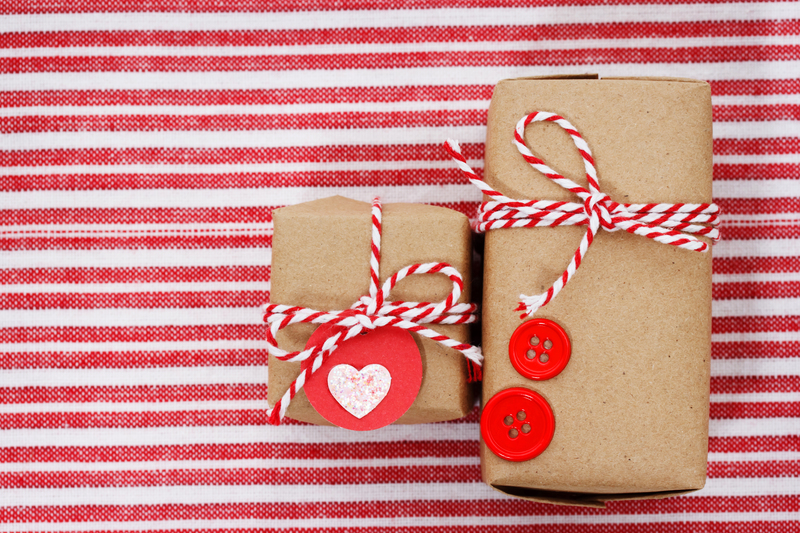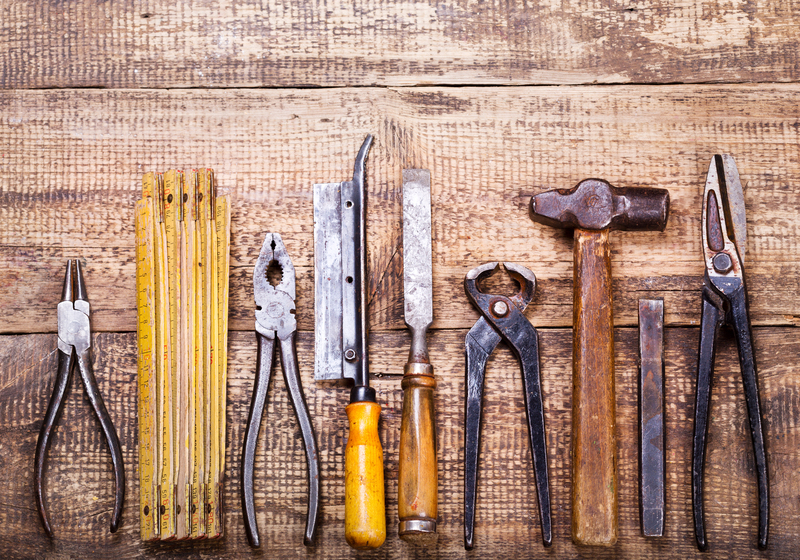Reinvent Your Kitchenware with These Recycling Tips
Are you looking to breathe new life into your kitchen and do your part for the environment at the same time? If you answered yes, you're in the right place! Recycling kitchenware and upcycling old kitchen items is not only eco-friendly but also incredibly rewarding. This comprehensive guide provides actionable tips and creative ideas to help you reinvent your kitchenware, reduce waste, and craft a stylish, sustainable kitchen.

Why Recycle and Upcycle Kitchenware?
From chipped mugs to scratched pans, we often toss out items that no longer serve their original purpose. But did you know that kitchenware made from materials like glass, ceramic, stainless steel, and even certain plastics can be given a second life? Recycling kitchen items reduces landfill waste, conserves resources, and can inspire amazing DIY projects. Plus, upcycling old utensils helps you create a unique and personalized kitchen aesthetic.
- Environmental Stewardship: Every piece of kitchenware recycled keeps non-biodegradable items out of landfills.
- Creativity: Upcycled kitchenware can become beautiful, functional art.
- Cost-Efficiency: Repurposing old kitchen items saves money over buying new ones.
- Personal Style: Customizing your kitchen accessories gives your space a unique charm.
Getting Started: What Kitchenware Can You Recycle?
Before you begin, it's helpful to know which kitchenware materials are recyclable:
- Metals (aluminum, stainless steel): Pots, pans, utensils, and cutlery.
- Glass: Jars, bowls, bottles, and serving dishes.
- Ceramics: Plates, mugs, and mixing bowls.
- Plastics: Storage containers and measuring cups (check recycling symbols).
Remember to check with your local recycling facility for specific guidelines on each material.
Creative Upcycling Ideas for Old Kitchenware
1. Transforming Old Utensils
Reinventing kitchen utensils is easier than you think. Here are some creative ways to reuse forks, spoons, whisks, and more:
- Wall Hooks: Bend old forks and spoons, attach to a wooden board, and mount on the wall for a quirky, handy rack.
- Garden Markers: Upcycle larger spoons by hammering them flat, painting, and using them as plant markers.
- Wind Chimes: String together assorted utensils for a musical addition to your porch or garden.
- Jewelry Holders: Attach ladles or whisks to your bedroom wall for a unique way to display accessories.
2. Repurposing Baking Pans & Trays
- Message Board: Old baking sheets can double as magnetic boards for notes and recipes.
- Planters: Muffin tins are perfect for starting seeds or crafting succulent gardens.
- Serving Trays: Decorate cookie sheets with decoupage or fabric for personalized serving trays.
3. Giving New Life to Jars and Bottles
Rather than throwing out glass jars or bottles, try these clever recycling tips:
- Storage Solutions: Use jars for storing pantry staples, spices, or even leftovers.
- Candle Holders: Add a tealight or votive to turn a jar into a charming candle holder.
- Flower Vases: Paint or decorate bottles and use them to showcase fresh flowers.
- DIY Soap Dispensers: Top a bottle with a pump for a custom soap or lotion dispenser.
4. Reinventing Mugs and Cups
- Succulent Pots: Chipped mugs make cute planters.
- Desk Organizers: Tidy up pencils or brushes using old cups or mugs.
- Candle Molds: Pour wax into vintage cups for homemade candles - great as gifts!
5. Plates and Bowls with a Purpose
- Garden Edging: Bury chipped plates halfway in garden beds for a whimsical border.
- Tiered Cake Stands: Glue plates and cups together to create multi-level stands perfect for serving pastries or fruit.
- Wall Art: Arrange mismatched plates in a creative display on your kitchen wall.
Recycling Kitchenware at Home: Safety First!
When recycling pans, dishes, and other kitchenware at home, always put safety first. Here are some essential tips:
- Clean Items Thoroughly: Remove any food residue or grease before upcycling.
- Avoid Sharp Edges: Handle broken ceramics or glass with care to avoid cuts.
- Safe Glues: When assembling pieces, use non-toxic adhesives safe for household use.
Pro tip: Not all cookware (like Teflon pans) is safe for high-heat repurposing due to chemical coatings. Always research before you start a project!
How to Recycle Cookware via Community Programs
If you'd rather not upcycle, consider these ways to responsibly dispose of or recycle kitchenware:
- Donation: Gently-used items can find new homes at local thrift stores, shelters, or food banks.
- Scrap Metal Collection: Aluminum and stainless steel cookware is often recyclable at scrap yards.
- Curbside Recycling: Check if your municipal program accepts certain kitchenware, especially glass or metal.
- Specialty Programs: Some brands and recycling centers run dedicated take-back schemes for old kitchenware.
*When donating, make sure all items are clean and functional. Damaged pieces should be recycled, not donated.*
Tips to Extend the Life of Your Kitchenware
The best way to avoid kitchenware waste is to extend your items' lifespan. Here are some expert tips to keep your kitchenware going strong:
- Hand wash: Whenever possible, preserve your nonstick and wooden items by washing them by hand.
- Use Wooden or Silicone Utensils: Protect nonstick coatings from scratches.
- Proper Storage: Nest pots and pans with liners to prevent chipping and scratches.
- Repair When Possible: Replace missing screws or tighten handles before discarding.
- Season Cast Iron: Maintain cast iron cookware with regular seasoning to prevent rust.
Eco-Friendly Kitchen Brands to Consider
When it's finally time to replace kitchenware, choose eco-conscious brands that use sustainable materials or offer recycling programs. Look for:
- Bamboo utensils and cutting boards over plastic ones.
- Recycled glass storage jars and mixing bowls.
- Stainless steel products from companies with take-back programs.
- Refurbished kitchen appliances and cookware.
Opt for brands that package products in recycled or compostable materials and avoid excessive packaging.
Inspiring Kitchenware Recycling Projects from Around the World
- France: Artisans convert old copper pans into lampshades or wall sconces, blending history and style.
- Japan: The art of Kintsugi (repairing broken pottery with gold lacquer) celebrates imperfections and prolongs the life of ceramic goods.
- USA: Community "repair cafes" help locals fix everything from blenders to bread makers, keeping functional items out of landfills.
Embrace a zero waste lifestyle by joining local upcycling workshops or online DIY groups for more inspiration!

Frequently Asked Questions
Can I recycle nonstick pans?
*Most curbside programs do not accept nonstick pans due to their coatings. However, many scrap metal facilities will take nonstick pans if you remove the handle and any plastic parts. Always check with your local facility for instructions.*
What about broken glass or ceramics?
*Broken ceramics and glass generally aren't accepted in curbside bins due to safety concerns and differences in melting points. Instead, reuse in garden projects or contact specialized recycling centers.*
Are plastic kitchen accessories recyclable?
*Look for recycling symbols and numbers on plastics. Many containers are accepted, but items like plastic utensils or silicone bakeware may not be recyclable curbside. Consider upcycling or take-back programs for these items.*
Final Thoughts: Make Kitchenware Recycling a Habit
Every kitchen generates waste, but with a little creativity and know-how, you can reinvent your kitchenware for a more sustainable home. Upcycle what you can, recycle responsibly, and inspire others with your eco-friendly kitchen transformations. Not only will your kitchen benefit from unique and personalized touches, but the planet will thank you too!
- Start simple: Tackle one area, such as utensils or jars, before moving to larger projects.
- Get the family involved: Crafting and upcycling are fun, hands-on activities for all ages.
- Share your ideas: Post pictures and tutorials online to encourage others to join the kitchenware revolution!
With these comprehensive kitchenware recycling tips, the next time you're about to discard that old mug or warped baking pan, remember - you have the power to create something beautiful, useful, and sustainable. Happy upcycling!